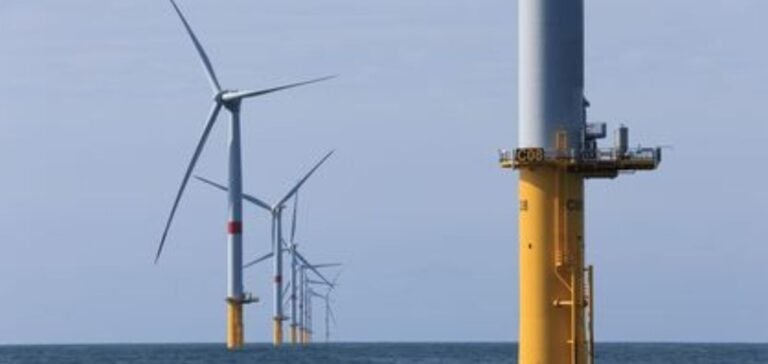Marine renewable energies are enjoying significant growth in France. In 2023, the sector generated more than 8,300 jobs, mainly thanks to offshore wind power, and almost doubled its sales to 3.5 billion euros, according to the latest report from the Observatoire des énergies de la mer.
A booming market
The data show an increase of 800 jobs over the previous year, with eight wind farms under construction by the end of 2023. The report shows that almost half of all jobs are filled by five major industrial companies. By 2024, over 1,100 new jobs are expected to be created, although companies in the sector are reporting recruitment difficulties due to a lack of suitable training. The sector’s sales jumped by 82% to 3.5 billion euros, of which 1.45 billion came from exports – three times more than in 2022. The majority of this activity is linked to manufacturing and assembly, confirming the industrial nature of the French industry.
Competitiveness and Ambitions
“These results demonstrate the competitiveness of French companies and their ability to position themselves on national and international markets”, emphasizes the Observatoire des énergies de la mer.
Nathalie Mercier-Perrin, President of the French Maritime Cluster, said:
“The industry is delivering on its promises, with the pace of job creation on the road to the 20,000 promised for 2035”.
However, France is lagging behind the targets set for offshore wind power in the 2010s. To date, three retail parks are operational: Saint-Nazaire since 2022, Saint-Brieuc and Fécamp since this spring. Three other wind farms are currently under construction: Yeu-Noirmoutier, Courseulles and Dieppe-Le Tréport.
Innovations and challenges
In addition to land-based wind power, France is developing floating pilot farms in the Mediterranean. The Provence Grand Large farm should be operational by the start of the 2024 school year. This technology would make it possible to install wind farms further offshore, thus increasing their potential. Other marine energies, such as tidal and wave power, account for around 500 jobs. Although less developed than wind power, these technologies offer interesting prospects for diversifying the maritime energy mix.
The rapid growth of marine renewable energies in France testifies to the competitiveness and innovation of the sector. With projects underway and emerging technologies such as floating wind turbines, the industry is well placed to achieve its ambitious targets and make a significant contribution to the energy transition.






















